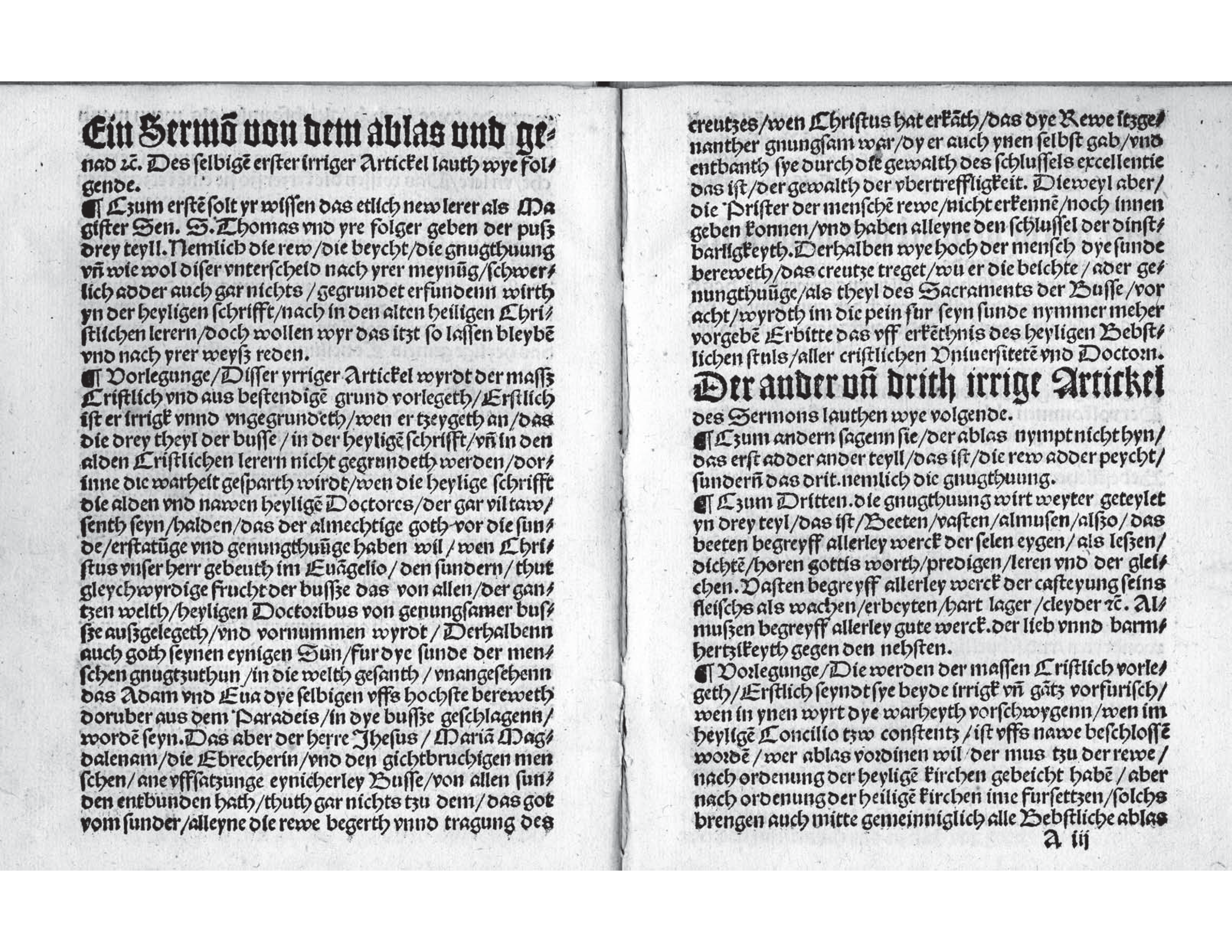I.
A Sermon concerning Indulgences and Grace, etc. Its first erroneous article reads as follows:
“First, you should know that various new teachers such as the Master of the Sentences, St. Thomas, and their followers ascribe three parts to penance, namely contrition, confession, and satisfaction. And although this distinction according to their opinion is with difficulty or not at all to be found substantiated in Holy Scripture or in the ancient holy Christian teachers, nevertheless we will let it stand now as it is and speak in their manner.”Citation: 25In each of the twenty articles, Tetzel quotes Luther’s sermon first and then proceeds to refute it.
REBUTTAL ¶ This erroneous article is rebutted thusly in a Christian manner and on solid foundation: First, it is erroneous and unfounded, when it claims that the three parts of penance are not founded on Holy Scripture and on the ancient Christian teachers, wherein truth resides. For Scripture and the ancient and modern holy doctors, of whom there are many thousand, maintain that Almighty God wishes to have repayment and satisfaction for sin. For Christ our Lord commands sinners in the Gospel, “Bear fruit worthy of repentance.” [Matthew 3:8] This is interpreted and understood by all the holy doctors of the whole world to mean satisfying penance.
For this reason, too, God sent his only Son into the world to make sufficient satisfaction for the sins of humankind, even though Adam and Eve repented most profoundly of their sin and yet for which they were cast forth from paradise into penance. However, that the Lord Jesus released Mary Magdalene, the adulteress, [Luke 7:37–51; John 8:1–11] and the paralytic man [Matthew 9:1–8; Mark 2:1–12; Luke 5:18–26] from all their sins without imposing any kind of penance has nothing to do with the fact that God desires from the sinner only contrition and the carrying of the cross. For Christ recognized that the contrition of the persons just mentioned, which he himself gave them, was sufficient. Moreover, he himself forgave them, and he released them perfectly by means of the power of the key, that is by the power of his absolute perfection. Priests, however, can neither recognize a person’s contrition nor give them contrition. They possess merely the key of their office. Therefore, no matter how greatly a person repents of his sins or carries the cross, if he scorns confession or satisfaction as elements of the sacrament of penance, the pain due his sins will never be forgiven him.
Offered in acknowledgment of the holy Papal See and of all Christian universities and doctors.
Notes
- 25
- In each of the twenty articles, Tetzel quotes Luther’s sermon first and then proceeds to refute it.
